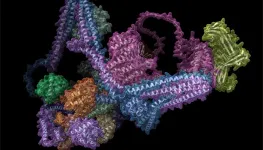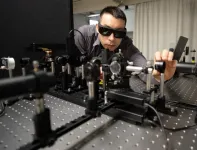(Press-News.org) UCLA researchers have developed an “all-in-one,” next-generation statistical simulator capable of assimilating a wide range of information to generate realistic synthetic data and provide a benchmarking tool for medical and biological researchers who use advanced technologies to study diseases and potential therapies. Specifically, the new computer-modeling – or “in silico” – system can help researchers evaluate and validate computational methods.
Single-cell RNA sequencing, called single-cell transcriptomics, is the foundation for analyzing genetic makeup (genome-wide gene expression levels) of cells. The introduction of additional “omics” offered detail on a range of molecular features, and in recent years, spatial transcriptomic technologies made it possible to profile gene expression levels with spatial location information of cell “neighborhoods,” showing precise locations and movements of cells within tissue.
“Thousands of computational methods have been developed to analyze single-cell and spatial omics data for a variety of tasks, making method benchmarking a pressing challenge for method developers and uses,” said Jingyi Jessica Li, PhD, a UCLA researcher and professor in statistics, biostatistics, computational medicine, and human genetics. Li is also affiliated with the Gene Regulation research area at the UCLA Jonsson Comprehensive Cancer Center. Li leads a research group titled the Junction of Statistics and Biology.
“Although simulators have evolved and become more powerful, there are numerous limitations. Few can generate realistic single-cell RNA sequencing data from continuous cell trajectories by mimicking real data, and most lack the ability to simulate data of multi-omics and spatial transcriptomics. We introduced the scDesign3, which we believe is the most realistic and versatile simulator to date, to fill the gap between researchers’ benchmarking needs and the limitations of existing tools,” said Li, senior author of a study published May 11 in Nature Biotechnology.
The UCLA researchers say they believe scDesign3 “offers the first probabilistic model that unifies the generation and inference for single-cell and spatial omics data. Equipped with interpretable parameters and a model likelihood, scDesign3 is beyond a versatile simulator and has unique advantages for generating customized in silico data, which can serve as negative and positive controls for computational analysis, and for assessing the goodness-of-fit of inferred cell clusters, trajectories, and spatial locations in an unsupervised way.” Goodness-of-fit is a measure of how well a statistical model fits a set of observations.
According to the authors, the system’s “transparent modeling and interpretable parameters can help users explore, alter, and simulate data. Overall, scDesign3 is a multi-functional suite for benchmarking computational methods and interpreting single-cell and spatial omics data.”
This study was led by Li’s student Dongyuan Song, a 4th-year Ph.D. student in the UCLA Interdepartmental Bioinformatics Ph.D. program.
Authors Additional authors include: Qingyang Wang, Guanao Yan, Tianyang Liu, and Tianyi Sun all in Li’s research group JSB at UCLA.
Funding This work was supported by the following grants: National Science Foundation DBI-1846216 and DMS-2113754, NIH/NIGMS R01GM120507 and R35GM140888, Johnson & Johnson WiSTEM2D Award, Sloan Research Fellowship, UCLA David Geffen School of Medicine W. M. Keck Foundation Junior Faculty Award, and the Chan-Zuckerberg Initiative Single-Cell Biology Data Insights Grant (to J.J.L.).
Competing interests The authors declare no competing interests.
Article: Song et al., scDesign3 generates realistic in silico data for multimodal single-cell and spatial omics, Nature Biotechnology DOI: 10.1038/s41587-023-01772-1.
URL upon publication: https://www.nature.com/articles/s41587-023-01772-1
END
Next-generation statistical simulator gives medical and biological researchers a benchmarking tool capable of closely mimicking single-cell and spatial genomics data
2023-05-11
ELSE PRESS RELEASES FROM THIS DATE:
Gene-editing technique could speed up study of cancer mutations
2023-05-11
CAMBRIDGE, MA -- Genomic studies of cancer patients have revealed thousands of mutations linked to tumor development. However, for the vast majority of those mutations, researchers are unsure of how they contribute to cancer because there’s no easy way to study them in animal models.
In an advance that could help scientists make a dent in that long list of unexplored mutations, MIT researchers have developed a way to easily engineer specific cancer-linked mutations into mouse models.
Using this technique, which ...
HudsonAlpha Institute for Biotechnology wins $1 million NSF Engines Development Award
2023-05-11
[HUNTSVILLE, ALABAMA] May 11, 2023 – HudsonAlpha Institute for Biotechnology, along with several regional collaborators, was awarded $1 million from the US National Science Foundation's Regional Innovation Engines, or NSF Engines, program. They are among the more than 40 unique teams to receive one of the first-ever NSF Engines Development Awards, which aim to help partners collaborate and create economic, societal, and technological opportunities for their regions.
The funded project, entitled “Advancing carbon-neutral crop technologies to develop sustainable consumer goods (AL, GA, NC, TN)” (“Greening the Southeast” ...
AI helps map the postal workers in cells
2023-05-11
University of Queensland researchers have used artificial intelligence to build a 3D map of key cell components to better understand dementia and infectious diseases including COVID-19.
Professor Brett Collins from UQ’s Institute for Molecular Bioscience and Professor Pete Cullen from the University of Bristol led a team that modelled the 16 subunit Commander complex, a bundle of proteins that act as ‘postal workers’ in cells.
“Just as the postal system has processes to transport ...
Artificial intelligence could improve heart attack diagnosis to reduce pressure on emergency departments
2023-05-11
An algorithm developed using artificial intelligence could soon be used by doctors to diagnose heart attacks with better speed and accuracy than ever before, according to new research from the University of Edinburgh, funded by the British Heart Foundation and the National Institute for Health and Care Research, and published today in Nature Medicine [1].
The effectiveness of the algorithm, named CoDE-ACS [2], was tested on 10,286 patients in six countries around the world. Researchers found that, compared to current testing methods, CoDE-ACS was able to rule ...
Spacemarkers novel AI method identifies locations, interactions among genes in and around tumors
2023-05-11
FOR IMMEDIATE RELEASE
SpaceMarkers, a new machine learning software developed by researchers at the Johns Hopkins Convergence Institute and the Johns Hopkins Kimmel Cancer Center, can identify molecular interactions among distinct types of cells in and around a tumor.
SpaceMarkers harnesses the information available through spatial transcriptomics — a cutting edge technology advancing the ability to measure gene expression in tissue samples based on their location in cells. Understanding the molecular profile of individual cells and the impact of intercellular interactions in the tumor microenvironment (cells ...
Obstructive sleep apnea associated with increased risks for long COVID
2023-05-11
Obstructive sleep apnea associated with increased risks for long COVID
Study suggests adults with both the sleep disorder and COVID may benefit from clinical monitoring
Among people who have had COVID-19, adults with obstructive sleep apnea were more likely to experience long-term symptoms suggestive of long COVID than those without the sleep disorder, according to a large study supported by the National Institutes of Health (NIH). In fact, multiple analyses of electronic health records (EHR) identified adults with sleep apnea may have up to a 75% higher risk ...
If one eye does not work, hearing goes at throttle up
2023-05-11
The senses represent our gates to receive information from the environment, but not all of them are always available for everyone, as in the case of blind or deaf people. Researchers know today quite well that the brain has the critical ability to adapt to different sensory experiences and, in some ways, to “compensate” for the lack of one sense or the other.
In a recent study, a group of researchers from the IMT School for Advanced Studies Lucca (Italy), in collaboration with a group from the University of Ulm (Germany), ...
New lens analysis approach could improve treatments for nearsightedness
2023-05-11
New lens analysis approach could improve treatments for nearsightedness
Instrumentation recreates properties of the myopic eye to test lenses that prevent visual decline
WASHINGTON — Researchers have developed new instruments for rigorously quantifying and comparing the light focusing properties of specialized eyeglass lenses that are used to slow the progression of myopia, or nearsightedness. The information gained with this new approach could help inform future lens designs that are even more effective at preventing visual decline.
Nearsightedness is on the rise around the globe, especially among children. If current trends continue, ...
Developing an AI tool to check ARRIVE compliance
2023-05-11
The freely available compliance checker will use natural language processing to automatically assess scientific manuscripts for the information in the ARRIVE Essential 10, a checklist of the most important details to include in any publication describing animal research.
A major factor influencing the reliability and reproducibility of animal experiments is how transparently they are reported. The ARRIVE guidelines help researchers improve the reporting of animal studies by clearly laying out the information that should be included in a manuscript. Reporting animal experiments in line with the ARRIVE guidelines is a requirement ...
Louisiana Cancer Research Center’s “Promising Practices Conference” seeks public and community involvement to help reduce cancer rates in Louisiana
2023-05-11
The Louisiana Cancer Research Center (LCRC) is stepping up its statewide efforts to reduce the state’s extraordinarily high cancer rates by enlisting the help of the public and communities. The LCRC’s newly established Office of Community Outreach and Engagement (OCOE) is convening an all-day “Promising Practices Conference” on Friday, June 2 at Louisiana Tech University and online to highlight the resources and assistance that are available to support better health and wellness throughout Louisiana and strategize on ways to overcome challenges. There is no charge to attend the conference, which is presented by the LCRC in collaboration with ...




